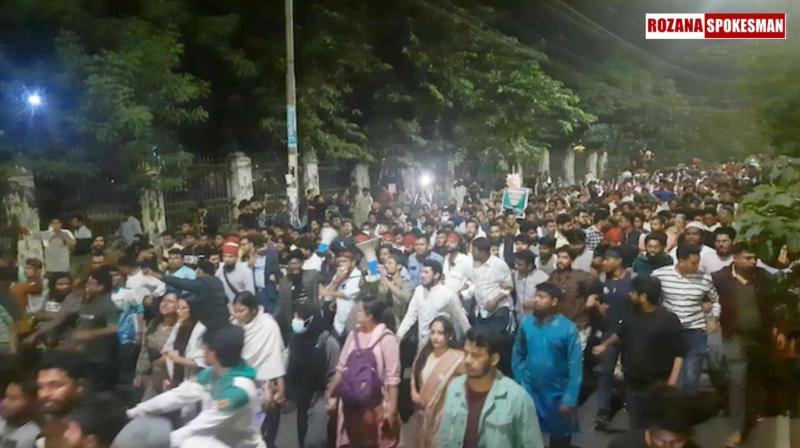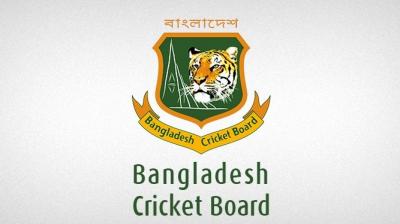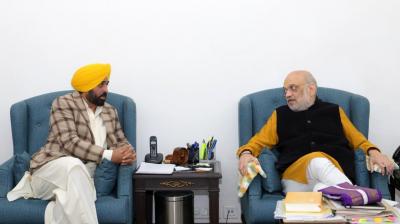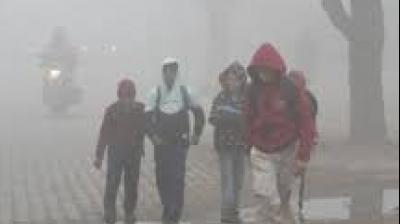
Students and activists in Dhaka held protests condemning the violence at the consulate.
India and Bangladesh are facing a growing diplomatic crisis fueled by protests surrounding the treatment of Hindu minorities in Bangladesh. Tensions heightened after the arrest of Chinmoy Krishna Das, a Hindu monk, in Bangladesh, leading to widespread demonstrations in India, particularly by Hindu nationalist groups and political figures, including those from Prime Minister Narendra Modi’s Bharatiya Janata Party (BJP).
Protests and Violent Clashes Intensify Diplomatic Strain
The unrest began after the arrest of Das in Chittagong, Bangladesh, where he was charged with sedition for allegedly raising a saffron flag above the national flag of Bangladesh during a protest advocating for minority rights. His arrest sparked protests in India, with Hindu nationalist groups demanding justice for Hindu minorities in Bangladesh.
The situation worsened on Monday when protesters, mostly linked to Hindu nationalist groups, stormed the Bangladesh Consulate in Agartala, Tripura, resulting in extensive damage. India’s Foreign Ministry condemned the attack, describing it as "deeply regrettable," and promised enhanced security for Bangladesh’s diplomatic missions. Several arrests were made in connection with the consulate attack.
In retaliation, students and activists in Dhaka held protests condemning the violence at the consulate. Bangladesh's Ministry of Foreign Affairs called the attack “heinous” and urged India to conduct a thorough investigation. The diplomatic tensions between the two countries are escalating, with both sides accusing the other of exacerbating the crisis.
Bangladesh’s Response and Criticism of Indian Media
Bangladesh officials, including foreign affairs adviser Touhid Hossain, have expressed outrage over the consulate attack, which they described as an assault on diplomatic properties and the desecration of the Bangladeshi flag. Hossain blamed "Hindu extremists" for the incident and criticized certain Indian media outlets for spreading disinformation, further inflaming anti-Bangladesh sentiment.
On the Indian side, there is widespread anger over the treatment of Hindus in Bangladesh. Experts, including former Indian High Commissioner to Dhaka Pinak Ranjan Chakravarty, have noted that India’s concerns are valid, particularly in light of the close cultural and historical ties between the two countries.
Hindu Minorities in Bangladesh: A Long-Standing Concern
Hindu minorities in Bangladesh have long faced discrimination and violence. Although Hindus constitute less than 10% of Bangladesh’s population, their treatment has been a contentious issue, with many leaders in the community reporting rising hostility, particularly from Islamist groups.
Following political upheaval in Bangladesh after Prime Minister Sheikh Hasina’s departure to India in August, minority groups, including Hindus, have faced increased targeting. The arrest of Chinmoy Krishna Das and subsequent violence, which led to the death of a Muslim lawyer in Chittagong, has further strained relations.
Political Leaders in India Call for Action
In India, political leaders have expressed concern over the situation. West Bengal Chief Minister Mamata Banerjee has voiced support for the central government’s stance on the violence in Bangladesh, calling for urgent action to protect religious minorities there. Banerjee emphasized that the central government should take the lead in addressing the issue while reaffirming her support for Hindu minority rights.
Prime Minister Narendra Modi has discussed the situation with Foreign Minister S. Jaishankar, focusing on the treatment of Hindus in Bangladesh, including the arrest of Das and the vandalism of Hindu temples in Chattogram. Modi’s government has reiterated its commitment to protecting the rights of religious minorities and has called for swift action from Bangladesh’s authorities.
Risk of Further Violence as Religious Tensions Escalate
As protests continue in both countries, there is growing concern about the potential for further violence. Activists fear that the ongoing inflammatory rhetoric could destabilize the region and affect ordinary citizens, especially those who travel between the two countries for business or medical reasons.
Experts stress the importance of restraint from both India and Bangladesh. Continued unrest could jeopardize relations between the two countries, which share deep cultural, historical, and economic ties. Diplomats and policymakers must work toward de-escalation, particularly as issues related to border security and the protection of religious minorities remain sensitive.
The coming weeks may prove critical in determining whether the diplomatic relations between India and Bangladesh can be restored or whether the tensions will continue to escalate.













